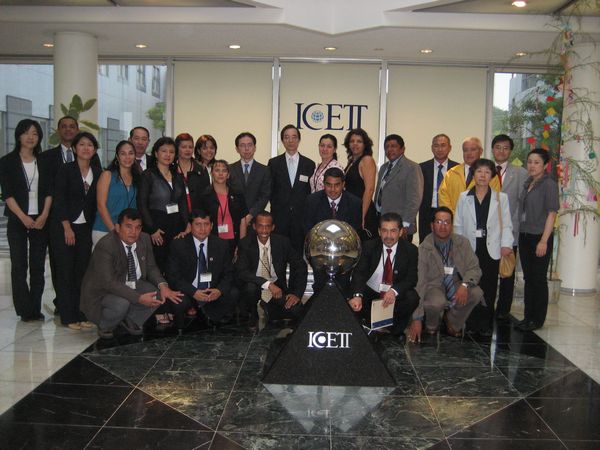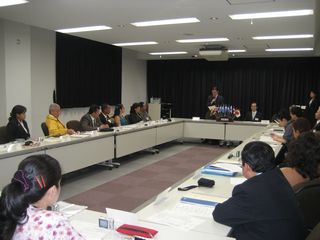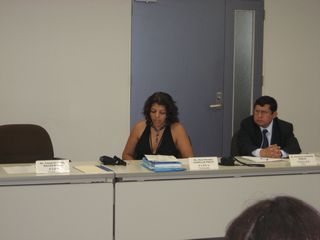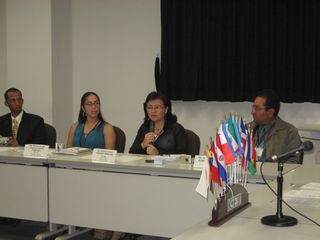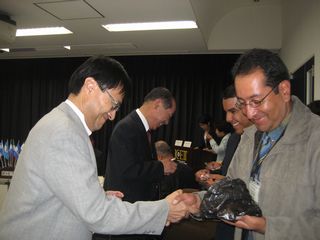Home > Workshop and Training > IN JAPAN > Fiscal Year 2008 > Fiscal 2008 JICA “Comprehensive Waste Management to Promote Establishment of a Recycling-based Society” Training for Central and South America is in progress.
Main content starts here.
Update:July 9, 2008
Fiscal 2008 JICA “Comprehensive Waste Management to Promote Establishment of a Recycling-based Society” Training for Central and South America is in progress.
JICA “Comprehensive Waste Management to Promote Establishment of a Recycling-based Society” Training for Central and South America started on July 2, 2008. 16 training participants were invited to take part; from Bolivia, Colombia, Costa Rica, Dominican Republic, El Salvador, Guatemala, Honduras, Mexico, Nicaragua, Panama, Paraguay, Peru and Venezuela. This project is commissioned by JICA (An independent administrative institution, the Japan International Cooperation Agency).
Training period, etc.
From July 3 (Thu) to August 7 (Fri), 2008
Training details (Purpose of training, etc.)
In Central and South American countries, various urban problems exist due to excessive population concentration in capital cities. In particular, environmental pollution, mainly caused by municipal waste (general waste and industrial waste), is a big issue. In this course, the focus is on soft aspects such as setting up a recycling-based society by promoting 3R (reduce, reuse and recycle) and environmental education, etc. The training participants also learn about the efficient waste treatment technology which exists in Japan. The purpose of the training is to acquire know-how and to be aware of Japanese technology in order to become capable of dealing with various municipal waste problems in Central and South American cities. This is done through encouraging environmental awareness enlightenment at pollution sources including general households and businesses as well as conducting training about the support system provided by administration. In addition, new viewpoints such as development and use of new energy through waste treatment, etc, are included. As for establishing a recycling-based society, in addition to making a contribution to global warming prevention, the ability of administrators is developed regarding dynamic plan-making and its implementation appropriate for the situation of each country in Central and South America.
